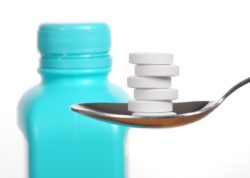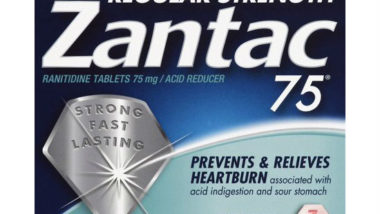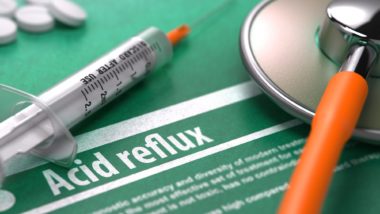 Researchers have discovered a PPI and cancer link among patients who take these antacid medications.
Researchers have discovered a PPI and cancer link among patients who take these antacid medications.
Doctors have known that patients whose stomachs contain the Helicobacter pylori (H. pylori) strain of bacteria are more apt to suffer from ulcers and stomach cancer. However, even after a course of antibiotics eliminates the H. pylori, patients continued to have an increased risk of stomach cancer.
Hong Kong researchers looked at more than 63,000 patients who had the H. pylori eradicated from their stomachs with the help of antibiotics, noting those who were also using Proton Pump Inhibitors (PPI) or Histamine 2 (H2) blockers.
Patients who took PPIs rather than H2 blockers, they found, had more than twice the risk for stomach cancer. The PPI and cancer risk increased the longer the patients took PPI medications.
PPI is short for proton pump inhibitor, a class of medications that includes Dexilant, Nexium, Prevacid, Prilosec and Protonix. PPIs control heartburn and acid reflux by blocking the enzyme in the stomach that secretes acid.
The link between PPIs and stomach cancer was compared to that of patients who took Histamine 2 blockers (H2 blockers), a line of antacids that includes Tagamet, Zantac and Pepcid. These drugs stop the stomach from producing an excess of acid.
PPI and Cancer Risk by the Numbers
In 2013, more than 15 million Americans were prescribed PPIs at a cost of more than $10 billion. The medications treat gastroesophageal reflux disease (GERD), dyspepsia, acid peptic disease, Zollinger-Ellison syndrome, acid reflux and peptic or stomach ulcers.
The drugs initially entered the market as short-term relief for patients who could eventually control symptoms through diet and food avoidance.
High-dollar direct-to-consumer advertising campaigns largely focused on convincing consumers to take PPIs as a means to eating whatever they wanted without suffering heartburn or other gastric issues. PPIs essentially became part of a patient’s diet since the drugs were introduced 30 years ago, and adverse effects from some led to PPI research.
Specifically, the Hong Kong researchers looked at 63,397 patients who conquered the H. pylori infection with antibiotics. Of those patients, 3,271 took PPIs and 21,179 used H2 blockers. Over the course of 7.6 years, a total of 153 patients developed stomach cancer. The patients who took PPIs showed a risk of cancer that was more than twice the risk of those who took H2 blockers.
A similar study from Sweden reported like results of PPI and cancer connections.
H. pylori is relatively common bacteria found in the stomachs of people throughout the world. For many people, the bacteria causes no symptoms. For a certain number of people, though, the bacteria can cause stomach cancer and cancer of the gastrointestinal tract.
PPI and cancer risk is just the latest finding among potential issues with long-term PPI use.
A study by John Hopkins University showed that patients who take PPIs have a 20 to 50 percent greater risk of chronic kidney disease (CKD). Researchers theorize that because PPIs reduce the body’s magnesium levels, the kidneys suffer from lack of an adequate amount of magnesium. Another theory is that the kidneys might be damaged from acute inflammation over time.
According to the study, nearly a quarter of patients taking PPIs long-term could stop taking them without suffering from another episode of heartburn or acid reflux.
If you or someone you know took PPI meds and suffered from Nexium stomach cancer or were hospitalized for Nexium kidney problems, you may qualify to file a Nexium lawsuit to pursue compensation for medical bills, pain and suffering, and more. See if you qualify for a Nexium lawsuit settlement by filling out the short form on this page. It’s absolutely free to participate, so act now!
ATTORNEY ADVERTISING
Top Class Actions is a Proud Member of the American Bar Association
LEGAL INFORMATION IS NOT LEGAL ADVICE
Top Class Actions Legal Statement
©2008 – 2026 Top Class Actions® LLC
Various Trademarks held by their respective owners
This website is not intended for viewing or usage by European Union citizens.
Get Help – It’s Free
Join a Free Prilosec, Nexium Lawsuit Investigation
If you qualify, an attorney will contact you to discuss the details of your potential case at no charge to you.
PLEASE NOTE: If you want to participate in this investigation, it is imperative that you reply to the law firm if they call or email you. Failing to do so may result in you not getting signed up as a client or getting you dropped as a client.
E-mail any problems with this form to:
[email protected].
Oops! We could not locate your form.












